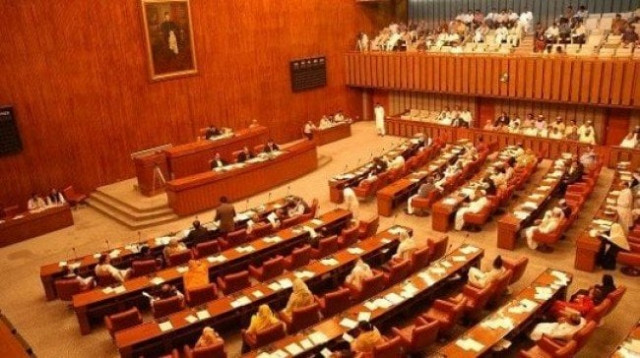Consumer interests come out on top

Consumer interests come out on top
The Competition Commission of Pakistan Bill 2010 will now again go back to the National Assembly for its final approval. Before the 18th amendment, a bill approved by the lower house but amended by the upper house of the Parliament used to be tabled in a mediation committee. But this procedure has now changed. “The message is that the parliament is absolutely responsible.
It was the most difficult bill I have ever dealt with and finally its victory of 170 million consumers”, said Senator Ahmad Ali, Chairman Senate Standing Committee on Finance and Revenue. Senator Ishaq Dar turned out to be a trouble shooter, who played a pivotal role in neutralising Senator Haroon Akhtar, whose business interests lie in sugar.
The approval of the antitrust Bill will bring an end to months of bickering between the cartels and the Competition Commission, as the former wanted to weaken the law and the latter was hell-bent on protecting it, presently enforced in the form of a Presidential Ordinance. The Competition Commission, with the support of the Chairman Committee, managed to convince the legislators that giving an aggrieved person a right to appeal in front of high courts meant delaying the legal process for decades.
The committee finally agreed upon amending another relevant clause. It has recommended the seting up of a three-member Competition Appellate Tribunal, headed by a retired Supreme Court judge or a retired chief justice of a high court. Further amending the clause, the committee has proposed that if the aggrieved person is dissatisfied with the Appellate Tribunal judgment he can appeal in the Supreme Court. The committee has made it mandatory for the Appellate Tribunal to give its judgment within six months.
The NA had earlier approved that instead of the Supreme Court, an aggrieved person could appeal in the high courts. However, it was the most difficult task for the Chairman CCP, Khalid Mirza to convince Senator Haroon Akhtar, Senator Talha Mahmood and Senator Safdar Abbasi on reversing the NA decision. “Cartels want that process of judicious justice be delayed”, said Senator Ahmad Ali of the MQM. The Commission also had to fight hard to retain powers of imposing heavy penalties, searching the premises of offending entities and the right to speak publicly.
Senator Haroon Akhtar, who probably had the toughest day in his political career, failed to convince the Commission and some of his colleagues that the Commission should not talk to the media and should take permission from a judicial body before searching a premises. “I will do advocacy. It is my job”, Khalid Mirza said. “Other regulators do not need advocacy then why the CCP”, argued Senator Haroon “There is no need to go to the press” However, the committee amended the clauses pertaining to the search of premises.
Now the commission must have reasonable grounds to search a premises and give these reasons in writing to the accused persons. The Commission also had to fight to retain the power of imposing heavy penalties once the person is convicted for making a cartel or has abused his dominant position in the market. However, the committee amended the relevant clause in order to convince Senator Haroon Akhtar. Under the new amendment, the Commission can impose a fine up to Rs 75 million or 10 per cent of annual turn over, which ever is the highest.
Earlier the Commission had the powers to impose penalties up to Rs 50 million or 15 per cent of annual turn over of a company. Senator Haroon Akhtar also wanted to slash fines on non implementation of the CCP orders. “When a person is proven guilty then why do you want to give him relief?”, queried Senator Ahmad Ali in his comments. The committee also deleted a clause which authorises the federal government to amend penalties approved by the parliament.
It also took away the penalties amount from the CCP and proposed that “funds should go to the federal divisible pool”.



















COMMENTS
Comments are moderated and generally will be posted if they are on-topic and not abusive.
For more information, please see our Comments FAQ